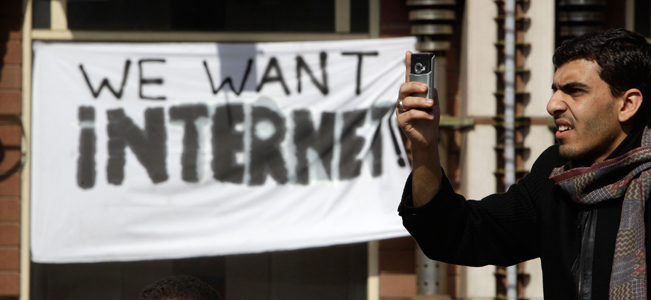 Like millions of other people around the world, I’ve been watching Charlie Sheen’s rants and explosions with rapt attention. I find myself thinking less about Mr. Sheen’s extreme words and actions, and thinking, instead, more about the built in dilemma of publishing them on the Internet. Even if Sheen wanted to take back every word of it, and managed to apologize enough to dilute the memory of the public, nothing ever defeats the memory of the Internet.
Like millions of other people around the world, I’ve been watching Charlie Sheen’s rants and explosions with rapt attention. I find myself thinking less about Mr. Sheen’s extreme words and actions, and thinking, instead, more about the built in dilemma of publishing them on the Internet. Even if Sheen wanted to take back every word of it, and managed to apologize enough to dilute the memory of the public, nothing ever defeats the memory of the Internet.
Interestingly, intertwined with the rise of popularity of social media is the fact that as more of us work to create a public face, the more important it becomes to manage our privacy. We need to be careful with not only our business or banking, but also with our personal privacy. Information, pictures, pieces of writing, comments, concerns, and anything that we post on the Internet can do far more harm than we’d like to think. By our own conduct, we build a permanent record, be it in a virtual form, of everything we do online. And most of it, unless we are careful, is available to the public at large. That means that recruiters, employers, friends, enemies, and criminals can access our lives, whether we want them to or not.
According to Career Builder 45% of employers are “screening” social networking sites when hiring new recruits. Over 80% of college recruiters asked in a Kaplan Test Prep survey suggest that social media will play at least some role in future recruitment. For people who tend to be over-sharers in their social media worlds, these trends can prove to be disastrous. Prospective students and employees might be denied employment or admission; or, in other cases, they can be removed from their posts or institutions. Not even Charlie Sheen is immune to this effect; he was fired on Monday.
Even when we think ” that posts are temporary, they really aren’t – just ask Gloria Huang. Huang accidentally signed in to the Red Cross Twitter feed (to which she has access given her position with the organization) and Tweeted about getting beer and getting drunk. The Tweet was deleted after about an hour, but there were innumerable screenshots made of and stories published about the “rogue” tweet. Thankfully for the Red Cross, they were able to pull something redeemable from the incident, but it does highlight the point that nothing is temporary on the Internet.
When it comes to the way I look at my own online presence, I like to think of it more like my reputation. If I wouldn’t show a picture to a meeting of my fellows at work, I won’t put it online. For kids, or parents thinking about their children’s online reputation, try thinking of your social media profiles as “grandmother approved.” In general, keeping our profiles private, be they on Facebook, MySpace, LinkedIn, etc, is a really good idea. In a day when we can Tweet from a smartphone and post to Facebook from an iPhone, keep a simple rule of thumb in the forefront of your mind at all times – do you want to see it in the front page of the New York Times sitting in your grandmother’s house? If not, keep it to yourself.
Really, the more we know about Over-the-counter Viagra the memory of the Internet, the more we should think before we post our lives online.

 use of millions around the world. While this is an obvious triumph, the fact that it was shut down at all has caused a sense of alarm around the world, especially in America. Can that happen here? Can we all be cut off from the Internet?
use of millions around the world. While this is an obvious triumph, the fact that it was shut down at all has caused a sense of alarm around the world, especially in America. Can that happen here? Can we all be cut off from the Internet?
Follow me